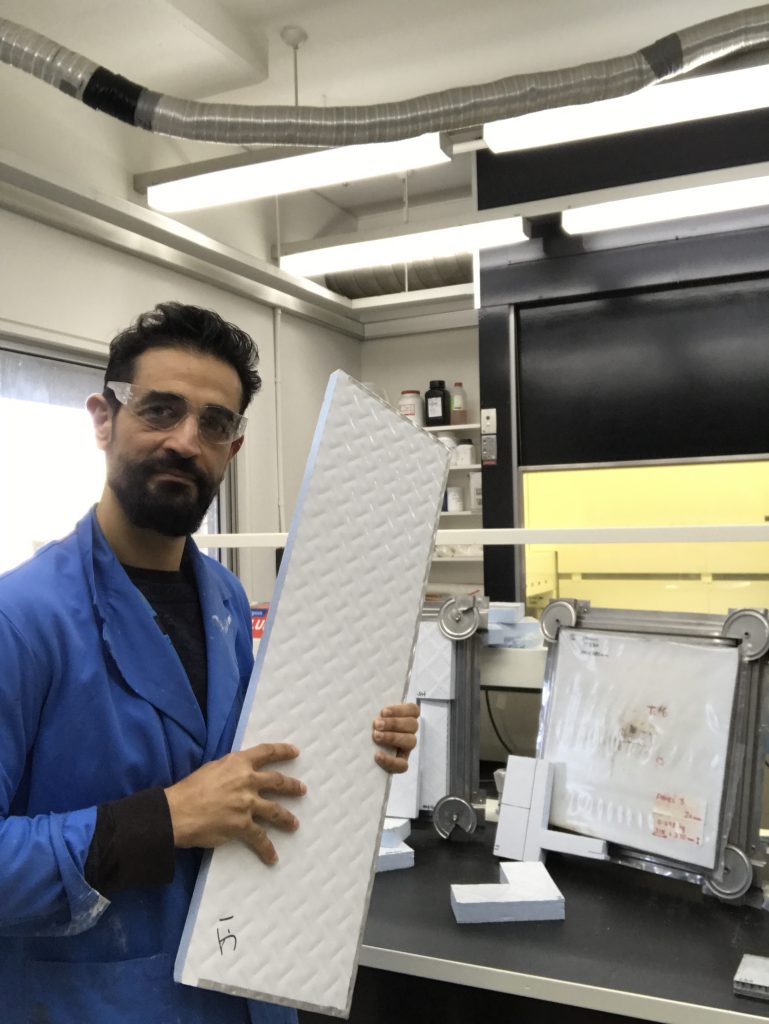CSIRO’s innovative new ship cladding reduces fire risk

CSIRO has developed a new lightweight, fire-resistant cladding that can withstand temperatures of more than 1000°C. CSIRO says the new Rapid Access Composite (RAC) Plus is set to change the face of ships around the world, creating advanced manufacturing jobs in Tasmania and reducing carbon emissions.
The material, developed in collaboration with Tasmanian SME, CBG Systems, has already been installed on two new ships and used to replace cladding on another.
The prototype RAC Plus cladding is the first of its kind in the world and uses a thermal protective coating that can withstand temperatures of over 1000°C and remain structurally stronger than conventional fire protection coatings.
The innovative panels are also reversible and can repel water, potentially doubling their service life. The current design is specific for high speed aluminium ships, but the composite has the potential to be modified also for construction products.
Weighing about half as much as traditional metal cladding, the resulting reduction in fuel consumption will lower carbon emissions as well as enhancing overall operational efficiencies.
The new technology was supported through several Federal Government programs and has created new jobs and increased international trade to Hobart.
CSIRO Chief Executive Dr Larry Marshall said, “This home-grown Aussie innovation has enabled CBG Systems to become an advanced manufacturer of globally-competitive marine insulation products and services, which is now bringing in valuable export dollars from around the world.”
“To be filling production orders within two years of the first project meeting, demonstrates how Australian SME manufacturers can benefit from positive research partnerships,” Mr Dell’Olio said. “With three ships already ordered, and two ships complete, CBG systems has hired six new personnel, with partners and suppliers also increasing their staff as a result,” according to Managing Director of CBG, Javier Herbon.
CSIRO Senior Experimental Scientist Mel Dell’Olio spent four months at CBG in Hobart, training and upskilling employees in advanced manufacturing techniques and assisting with the commercialisation process. During that time the team manufactured 2500 insulation panels, which are now being built into new ships to supply international customers, all meeting the relevant fire standard tests for the marine industry and offering at least 60-minutes of fire protection.
CBG Systems has lodged its own patent on RAC Plus and recent fire tests indicate the new and improved panels, with greater durability and fire-resistance, can be used on steel ships and aluminium high-speed craft. There are also potential applications in aerospace such as for battery enclosures, and the civil construction industry, enabling CBG to expand into new markets.
